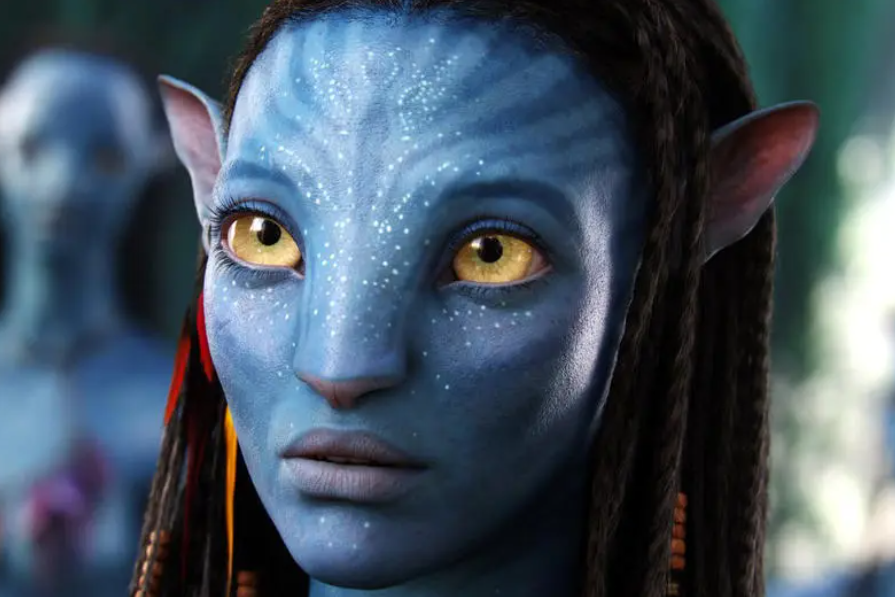A Journey Through Time, Emotion, and Imagination

**Movies: A Journey Through Time, Emotion, and Imagination**
Movies have been a central part of human culture for over a century, captivating audiences with their ability to tell stories, evoke emotions, and transport us to new worlds. From the silent films of the early 20th century to the blockbusters of today, cinema has evolved into a diverse and vibrant art form that reflects the hopes, dreams, and anxieties of society. In this article, we embark on a journey through the world of movies, exploring their history, impact, and enduring legacy.
**A Century of Cinema: From Silent Films to Talkies**
The history of cinema dates back to the late 19th century, with the invention of the motion picture camera and the first public screenings of short films. Early filmmakers like Georges Méliès and the Lumière brothers experimented with the medium, pioneering techniques such as editing, special effects, and narrative storytelling.
The 1920s marked the golden age of silent cinema, with classics like "The Cabinet of Dr. Caligari" and "Metropolis" pushing the boundaries of visual storytelling. However, the introduction of synchronized sound in the late 1920s revolutionized the industry, giving rise to the era of "talkies" and iconic films like "The Jazz Singer" and "Gone with the Wind."
**Hollywood's Golden Age: Stars, Studios, and Spectacle**
The 1930s and 1940s saw the emergence of Hollywood as the epicenter of the global film industry, with major studios like MGM, Warner Bros., and Paramount Pictures dominating the market. This period gave rise to iconic genres such as film noir, musicals, and screwball comedies, as well as legendary stars like Humphrey Bogart, Marilyn Monroe, and Audrey Hepburn.
World War II had a profound impact on cinema, shaping the themes and aesthetics of films produced during this period. War epics like "Casablanca" and "The Bridge on the River Kwai" reflected the anxieties and heroism of the time, while comedies and musicals provided much-needed escapism for audiences facing hardship and uncertainty.
**The Rise of New Hollywood: Rebels, Realism, and Revolution**
The 1960s and 1970s marked a period of upheaval and experimentation in Hollywood, as a new generation of filmmakers challenged the conventions of traditional studio filmmaking. Directors like Francis Ford Coppola, Martin Scorsese, and Stanley Kubrick pushed the boundaries of cinematic storytelling, exploring complex themes and characters with unprecedented depth and realism.
This era saw the rise of the New Hollywood movement, characterized by its emphasis on personal filmmaking, social commentary, and artistic innovation. Classic films like "The Godfather," "Taxi Driver," and "2001: A Space Odyssey" continue to resonate with audiences today, their themes and imagery enduring as touchstones of cinematic excellence.
**Blockbusters, Franchises, and Globalization**
The late 20th and early 21st centuries witnessed the rise of the blockbuster era, fueled by advances in technology, marketing, and globalization. Hollywood studios began investing heavily in big-budget tentpole films designed to appeal to global audiences, leading to the proliferation of franchises like "Star Wars," "Harry Potter," and the Marvel Cinematic Universe.
While blockbusters dominated the box office, independent filmmakers continued to push the boundaries of cinema with bold, innovative storytelling. Directors like Quentin Tarantino, Christopher Nolan, and Wes Anderson gained acclaim for their distinctive voices and uncompromising vision, challenging mainstream conventions and inspiring a new generation of filmmakers.
**The Digital Revolution: Streaming, Diversity, and Disruption**
The rise of digital technology and the internet has transformed the way we consume and create movies, giving rise to streaming platforms like Netflix, Amazon Prime, and Disney+. These platforms have democratized access to content, allowing filmmakers from diverse backgrounds to reach global audiences with their stories.
Moreover, the digital revolution has sparked a renaissance in independent filmmaking, as filmmakers harness new tools and distribution channels to bypass traditional gatekeepers and connect directly with audiences. This has led to a proliferation of diverse voices and perspectives in cinema, as filmmakers explore untold stories and challenge dominant narratives.
**The Future of Cinema: Innovation, Adaptation, and Resilience**
As we look to the future, the landscape of cinema continues to evolve in response to technological, cultural, and economic shifts. Virtual reality, artificial intelligence, and interactive storytelling are poised to revolutionize the medium, offering new ways for audiences to engage with stories and characters.
Moreover, the COVID-19 pandemic has accelerated the trend towards digital distribution and streaming, forcing traditional theaters to adapt to changing consumer habits and preferences. While the future of the theatrical experience remains uncertain, one thing is clear: cinema will continue to endure as a powerful and transformative art form, inspiring generations of audiences with its ability to entertain, educate, and enlighten.
In conclusion, movies are more than just entertainment; they are a reflection of the human experience, a window into our collective imagination, and a testament to the power of storytelling. Whether we're laughing, crying, or on the edge of our seats, cinema has the power to move us, inspire us, and remind us of what it means to be human. As long as there are stories to be told and dreams to be shared, the magic of movies will continue to captivate audiences around the world.
Movies have been a central part of human culture for over a century, captivating audiences with their ability to tell stories, evoke emotions, and transport us to new worlds. From the silent films of the early 20th century to the blockbusters of today, cinema has evolved into a diverse and vibrant art form that reflects the hopes, dreams, and anxieties of society. In this article, we embark on a journey through the world of movies, exploring their history, impact, and enduring legacy.
**A Century of Cinema: From Silent Films to Talkies**
The history of cinema dates back to the late 19th century, with the invention of the motion picture camera and the first public screenings of short films. Early filmmakers like Georges Méliès and the Lumière brothers experimented with the medium, pioneering techniques such as editing, special effects, and narrative storytelling.
The 1920s marked the golden age of silent cinema, with classics like "The Cabinet of Dr. Caligari" and "Metropolis" pushing the boundaries of visual storytelling. However, the introduction of synchronized sound in the late 1920s revolutionized the industry, giving rise to the era of "talkies" and iconic films like "The Jazz Singer" and "Gone with the Wind."
**Hollywood's Golden Age: Stars, Studios, and Spectacle**
The 1930s and 1940s saw the emergence of Hollywood as the epicenter of the global film industry, with major studios like MGM, Warner Bros., and Paramount Pictures dominating the market. This period gave rise to iconic genres such as film noir, musicals, and screwball comedies, as well as legendary stars like Humphrey Bogart, Marilyn Monroe, and Audrey Hepburn.
World War II had a profound impact on cinema, shaping the themes and aesthetics of films produced during this period. War epics like "Casablanca" and "The Bridge on the River Kwai" reflected the anxieties and heroism of the time, while comedies and musicals provided much-needed escapism for audiences facing hardship and uncertainty.
**The Rise of New Hollywood: Rebels, Realism, and Revolution**
The 1960s and 1970s marked a period of upheaval and experimentation in Hollywood, as a new generation of filmmakers challenged the conventions of traditional studio filmmaking. Directors like Francis Ford Coppola, Martin Scorsese, and Stanley Kubrick pushed the boundaries of cinematic storytelling, exploring complex themes and characters with unprecedented depth and realism.
This era saw the rise of the New Hollywood movement, characterized by its emphasis on personal filmmaking, social commentary, and artistic innovation. Classic films like "The Godfather," "Taxi Driver," and "2001: A Space Odyssey" continue to resonate with audiences today, their themes and imagery enduring as touchstones of cinematic excellence.
**Blockbusters, Franchises, and Globalization**
The late 20th and early 21st centuries witnessed the rise of the blockbuster era, fueled by advances in technology, marketing, and globalization. Hollywood studios began investing heavily in big-budget tentpole films designed to appeal to global audiences, leading to the proliferation of franchises like "Star Wars," "Harry Potter," and the Marvel Cinematic Universe.
While blockbusters dominated the box office, independent filmmakers continued to push the boundaries of cinema with bold, innovative storytelling. Directors like Quentin Tarantino, Christopher Nolan, and Wes Anderson gained acclaim for their distinctive voices and uncompromising vision, challenging mainstream conventions and inspiring a new generation of filmmakers.
**The Digital Revolution: Streaming, Diversity, and Disruption**
The rise of digital technology and the internet has transformed the way we consume and create movies, giving rise to streaming platforms like Netflix, Amazon Prime, and Disney+. These platforms have democratized access to content, allowing filmmakers from diverse backgrounds to reach global audiences with their stories.
Moreover, the digital revolution has sparked a renaissance in independent filmmaking, as filmmakers harness new tools and distribution channels to bypass traditional gatekeepers and connect directly with audiences. This has led to a proliferation of diverse voices and perspectives in cinema, as filmmakers explore untold stories and challenge dominant narratives.
**The Future of Cinema: Innovation, Adaptation, and Resilience**
As we look to the future, the landscape of cinema continues to evolve in response to technological, cultural, and economic shifts. Virtual reality, artificial intelligence, and interactive storytelling are poised to revolutionize the medium, offering new ways for audiences to engage with stories and characters.
Moreover, the COVID-19 pandemic has accelerated the trend towards digital distribution and streaming, forcing traditional theaters to adapt to changing consumer habits and preferences. While the future of the theatrical experience remains uncertain, one thing is clear: cinema will continue to endure as a powerful and transformative art form, inspiring generations of audiences with its ability to entertain, educate, and enlighten.
In conclusion, movies are more than just entertainment; they are a reflection of the human experience, a window into our collective imagination, and a testament to the power of storytelling. Whether we're laughing, crying, or on the edge of our seats, cinema has the power to move us, inspire us, and remind us of what it means to be human. As long as there are stories to be told and dreams to be shared, the magic of movies will continue to captivate audiences around the world.
